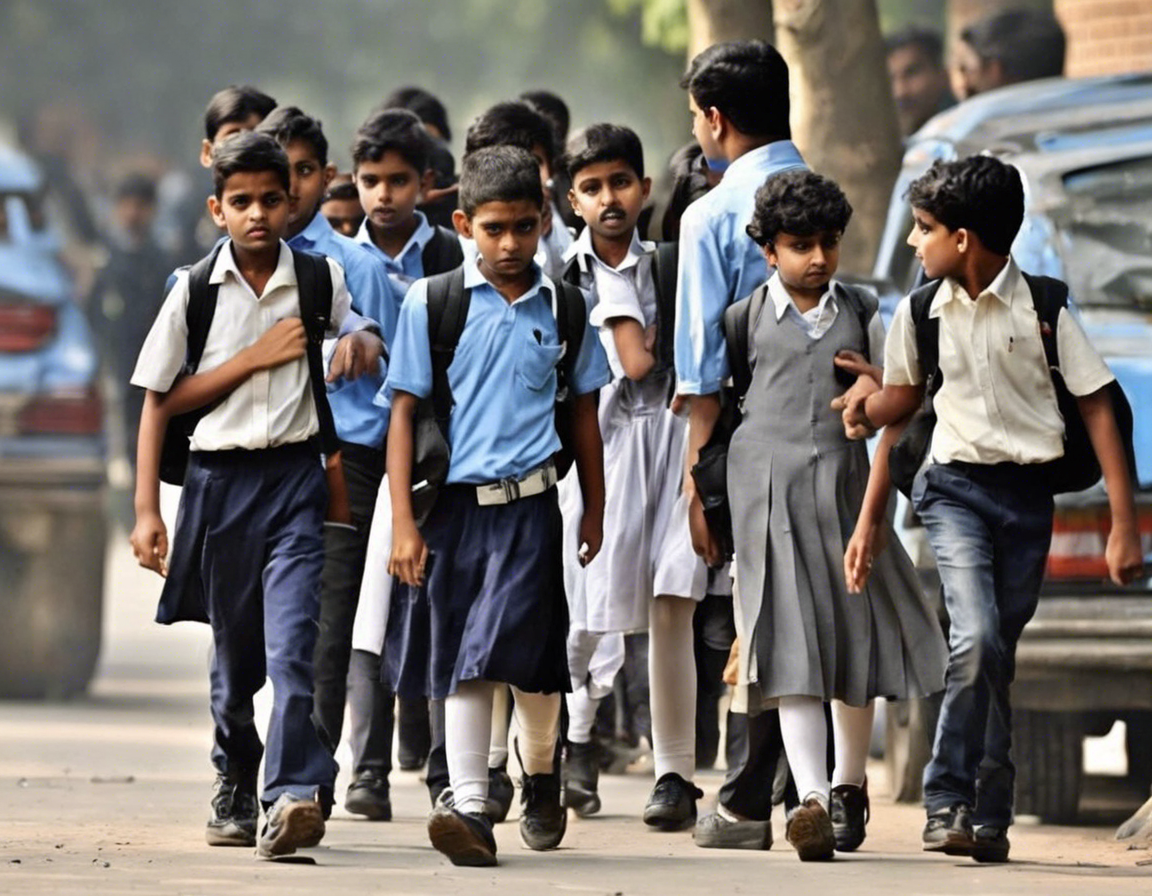The safety and security of students in educational institutions have always been a top priority for parents, teachers, and administrators. Today, with the increasing threats of violence and terrorism, schools face numerous challenges in ensuring a secure and conducive learning environment for their students. Recently, a wave of bomb threats has disrupted schools in Delhi, causing panic and concern among school authorities and parents alike.
Understanding the Bomb Threats in Delhi Schools
The recent spate of bomb threats in Delhi schools has sent shockwaves through the community and raised questions about the safety measures in place to protect students and staff. These threats have forced schools to evacuate their premises, disrupt classes, and involve law enforcement agencies to sweep the area for potential threats. While most of these threats turn out to be hoaxes, the fear and anxiety they instill can have a lasting impact on the psychological well-being of students and staff.
Impact on Students and Staff
The bomb threats in Delhi schools have not only disrupted the academic schedule but have also taken a toll on the mental health and well-being of students and staff. The constant fear and anxiety surrounding these threats can lead to stress, trauma, and psychological distress among students, affecting their ability to focus on their studies and perform well academically. For teachers and staff, the responsibility of ensuring the safety of students while maintaining a sense of normalcy in the face of such threats can be overwhelming and emotionally taxing.
Response and Preparedness
In light of these bomb threats, schools in Delhi must prioritize emergency preparedness and response protocols to effectively deal with such situations. This includes regular safety drills, communication systems to alert stakeholders in case of emergencies, coordination with law enforcement agencies, and updating security measures to prevent unauthorized access to school premises. It is crucial for schools to have clear and comprehensive protocols in place to handle bomb threats and other security incidents efficiently.
Role of Parents and Community
Parents play a vital role in supporting schools and the authorities in ensuring the safety of students during bomb threats and other emergencies. It is essential for parents to stay informed about the safety measures implemented by the school, encourage open communication with their children about their concerns, and reinforce the importance of following safety protocols in such situations. The support and cooperation of the community are also crucial in maintaining a secure environment for students and fostering a sense of trust and solidarity during times of crisis.
Addressing the Root Causes
While dealing with the immediate threats of bomb scares in schools, it is equally important to address the root causes that lead to such incidents. This includes addressing issues of mental health, bullying, social isolation, and other underlying factors that may contribute to threats of violence and terrorism in educational institutions. Schools, parents, and communities must work together to promote a culture of empathy, understanding, and support to prevent such threats from arising in the future.
Frequently Asked Questions (FAQs)
- What should parents do if their child’s school receives a bomb threat?
-
Parents should follow the instructions provided by the school authorities, stay calm, and cooperate with law enforcement agencies.
-
How can schools improve their security measures to prevent bomb threats?
-
Schools can enhance security by implementing access control measures, installing surveillance systems, conducting regular drills, and training staff in emergency response protocols.
-
What impact can bomb threats have on the psychological well-being of students?
-
Bomb threats can cause fear, anxiety, stress, and trauma among students, affecting their academic performance and emotional health.
-
How can communities support schools in ensuring student safety during bomb threats?
-
Communities can support schools by promoting awareness, offering resources for emergency preparedness, and fostering a culture of unity and solidarity.
-
What role does mental health awareness play in preventing bomb threats in schools?
- Promoting mental health awareness helps address underlying issues such as bullying, social isolation, and emotional distress that may lead to threats of violence in schools.
In conclusion, the recent bomb threats in Delhi schools underscore the importance of proactive safety measures, community support, and addressing the root causes of violence in educational institutions. By working together and staying vigilant, schools can create a secure environment where students can learn and thrive without fear of threats or disruptions.
